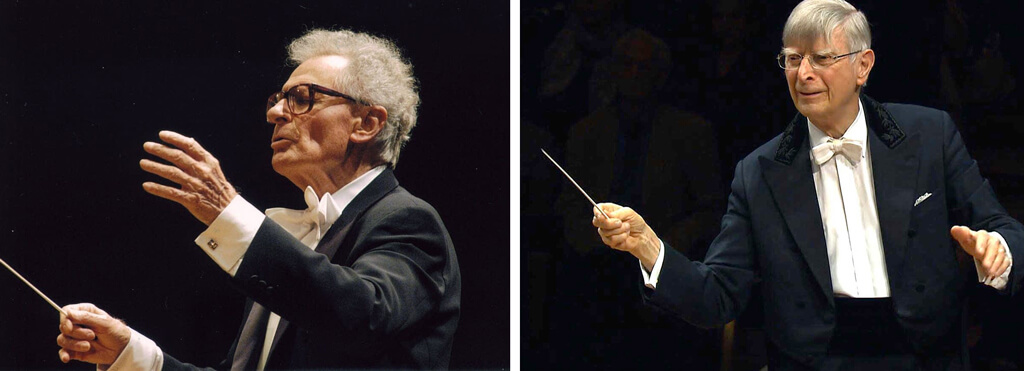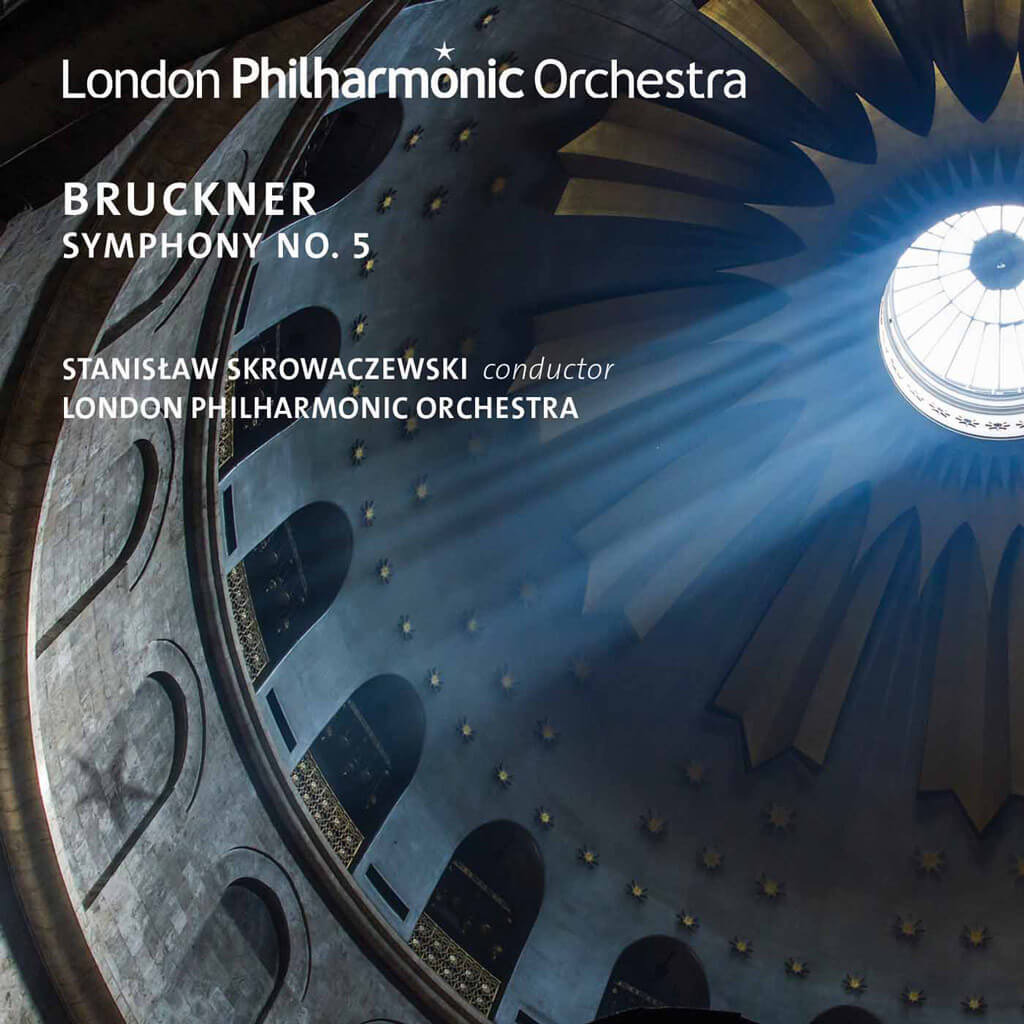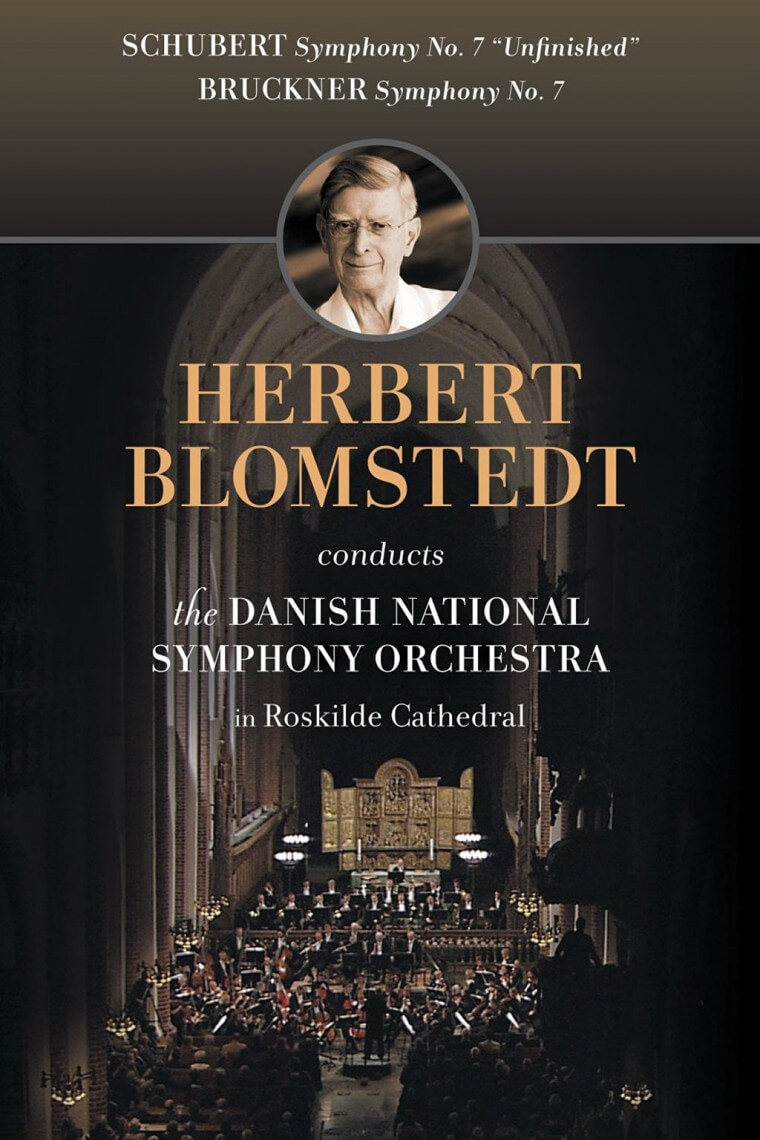
In many orchestras, players are required to retire when they reach the age of 65. Not so for conductors. Many remain active into their 80s. An exceptional few continue even longer. The cynical among you will probably say “Well, why not? Conductors don’t do anything anyway.” These two new recordings were done by conductors in their 80s, and my sense is that orchestral players hold them both in high regard, not only for what they have achieved in the past but for what they can still offer. These are wonderful performances that can be compared to the best on record given by conductors of any age.
As it happens, both conductors have strong American connections. Blomstedt ( born 1927, now aged 89) was born in the United States although his parents are Swedish. For some years (1985-95) he was music director of the San Francisco Symphony. Skrowaczewski (born 1923, now aged 92) is Polish by birth but has lived most of his life in the U.S. He too headed an American orchestra – the Minneapolis Symphony, now called the Minnesota Orchestra, from 1960 until 1979 — and continues to live in Minneapolis.
In spite of their advanced ages, these two conductors are in no sense traditionalists. Skrowaczewski, also a very good composer himself, is known for his technical mastery in a wide range of repertoire. Blomstedt has always championed new music and is known for his meticulous scholarly research. Both conductors could fairly be described as intellectuals for their depth of cultural knowledge, and also for their tendency to emphasise accuracy and discipline over raw emotion in their performances.

Bruckner’s Fifth Symphony is his longest symphony and remains a formidable challenge for orchestras, conductors and audiences. The last movement, with its long stretches of somewhat academic fugal writing, is particularly difficult to make coherent and compelling. But usually, all is forgiven with the massive brass chorale at the very end. I must confess that I found the payoff in the Skrowaczewski performance a little underwhelming. Skrowaczewski seems unwilling to succumb to the grandiosity of it all. Twelve bars from the end, when the whole orchestra is instructed by Bruckner to play fff — the loudest dynamic marking in the entire score — Skrowaczewski throttles everyone back a notch so that we can hear the flutes play a secondary melody for two bars. Granted, few listeners will ever have noticed this passage before, but it really doesn’t deserve this sort of prominence at the expense of the climactic moment of the entire symphony.
But elsewhere in this Bruckner rendition, Skrowaczewski got my attention time and again by bringing out secondary parts which, when actually heard, make the music much more three dimensional. Although this is not my favourite Bruckner 5th on record, it is nonetheless a very distinguished one. The London Philharmonic plays brilliantly for Skrowaczewski. For the record, Skrowaczewski, who has spent a lifetime studying and conducting the Bruckner symphonies, has recorded a complete cycle with the Saarbrücken Radio Symphony Orchestra (Oehms Classics 25).

Herbert Blomstedt, also a respected Brucknerian of long standing, has made some especially fine recordings with the Dresden Staatskapelle. In the insightful interview which accompanies this new recording of the Seventh Symphony, Blomstedt talks candidly about being offered the directorship of this orchestra, and about how he agonised for five years before finally accepting it. The Dresden Staatskapelle, one of Europe’s oldest orchestras, played with a distinctive sound, and had a long association with many great composers including Richard Strauss. At the time of the offer, Dresden was a part of communist East Germany, and Blomstedt was reluctant to be seen to be supporting such a brutal government.
As Blomstedt tells the story, he only made up his mind to accept the offer after Herbert von Karajan’s first visit to Dresden in 1970, during which Karajan recorded Wagner’s Die Meistersinger with the orchestra. After the sessions, Karajan made some unusually heartfelt comments about the orchestra, which were recorded by someone present, and a copy of the tape was given to Blomstedt. In Karajan’s words: “Dresden had many dead monuments. You are a living monument. If I did not have so many commitments to the Berlin Philharmonic, the Salzburg Festival and elsewhere, I would come to you.”
This was the argument that clinched it for Blomstedt. In the words of the president of the Dresden Staatskapelle “If Karajan had no doubt about being our director, why are you in doubt?” Blomstedt finally accepted the offer and served as the director of the Dresden Staatskapelle from 1975 to 1985.
It was characteristic of Blomstedt that he never brought his family to Dresden; instead, he lived in a room by himself at the Adventist Church. Churches were barely tolerated in communist East Germany, yet here was a self-identified Christian heading one of its major cultural institutions.
This 79-minute interview alone is worth the price of the DVD. In it, Blomstedt offers illuminating comments on the Schubert and Bruckner symphonies he is about to conduct, tells a great story about sneaking into Toscanini’s rehearsals in New York in 1953, and talks with unusual insight about the power of music:
In music, we experience a search for greatness, which some call God, and some call cosmos and others don’t even have a name for it. But we know it’s there, and we search for it, perhaps desperately.
Blomstedt leads a wonderfully expressive performance of the Bruckner 7th, and the Danish National Symphony Orchestra responds magnificently. The performance is greatly enhanced by its generous acoustical setting, the Roskilde Cathedral in eastern Denmark, a venerated church dating back to the Twelfth Century.
Although it must have been difficult for the musicians to hear each other in a place with so much reverberation, on this recording the members of the Danish National Symphony Orchestra play with remarkable precision and nearly ideal balances.
The performance of the Schubert “Unfinished” is equally fine, performed with great tenderness and expansive phrasing.
#LUDWIGVAN
Want more updates on Toronto-centric classical music news and review before anyone else finds out? Get our exclusive newsletter here and follow us on Facebook for all the latest.
- SCRUTINY | TSO Lets Berlioz Do The Talking In Season Opener - September 21, 2018
- RECORD KEEPING | Even Yannick Nézet-Séguin Can’t Make Us Love Mozart’s La Clemenza di Tito - September 6, 2018
- RECORD KEEPING | Giovanna d’Arco With Anna Netrebko Explains Why The Best Operas Survive - August 30, 2018



